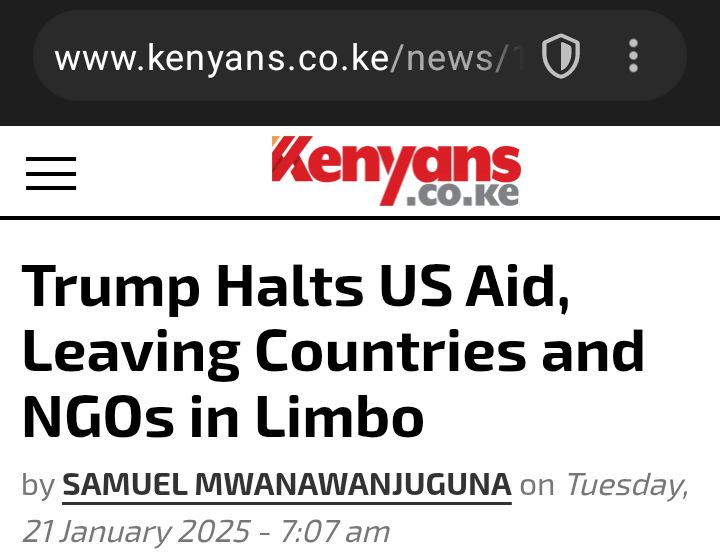Newly sworn-in US President Donald Trump has caused a stir with his decision to pause all foreign aid for 90 days.
According to Kenyans.co.ke, this freeze, signed into effect on January 20, aims to align foreign assistance with his administration’s policies.
The executive order argues that foreign aid often contradicts US interests and disrupts global peace.
This decision is particularly concerning for countries like Kenya, which heavily relies on American assistance to sustain its development programs.
Kenya has been a major beneficiary of US aid over the years, receiving billions to support critical sectors such as health, security, and infrastructure.

For instance, the US President’s Emergency Plan for AIDS Relief (PEPFAR) has provided $7 billion over 15 years to combat HIV/AIDS in Kenya.
This program has been a cornerstone of the country’s fight against the epidemic, particularly in rural areas where access to healthcare is limited.
In 2023, the US allocated $128 million in drought relief, which supported 1.3 million Kenyans affected by the crisis.
Furthermore, in 2024, Kenya secured a $3.6 billion deal with the US to fund the construction of the Nairobi-Mombasa expressway and other infrastructure projects.
These initiatives have significantly boosted Kenya’s economy and improved living standards.
However, the pause on foreign aid has created a cloud of uncertainty for Kenya and other aid-dependent nations.
Many non-governmental organizations (NGOs) operating in Kenya rely heavily on US funding to run their programs.
With the White House yet to specify which programs or organizations will be affected, there is growing concern about potential financial hardships.
Analysts believe this decision could slow progress in vital sectors such as health and education, leaving millions of Kenyans vulnerable.
The freeze also underscores a broader shift in US foreign policy under Trump’s leadership.
By prioritizing American interests, the administration appears less willing to support global development efforts.
For Kenya, this move could mean reevaluating its reliance on foreign aid and exploring alternative funding sources.
Experts warn that the strain on resources might lead to disruptions in essential programs, particularly those targeting healthcare and poverty alleviation.
Trump’s decision has sparked a global debate about the role of foreign aid in international relations.
While some view it as a necessary recalibration of US priorities, others argue that it risks destabilizing progress in developing nations.
For Kenya, the next 90 days will be critical in determining how this policy shift impacts its development agenda and its ability to sustain programs that millions of citizens depend on.
